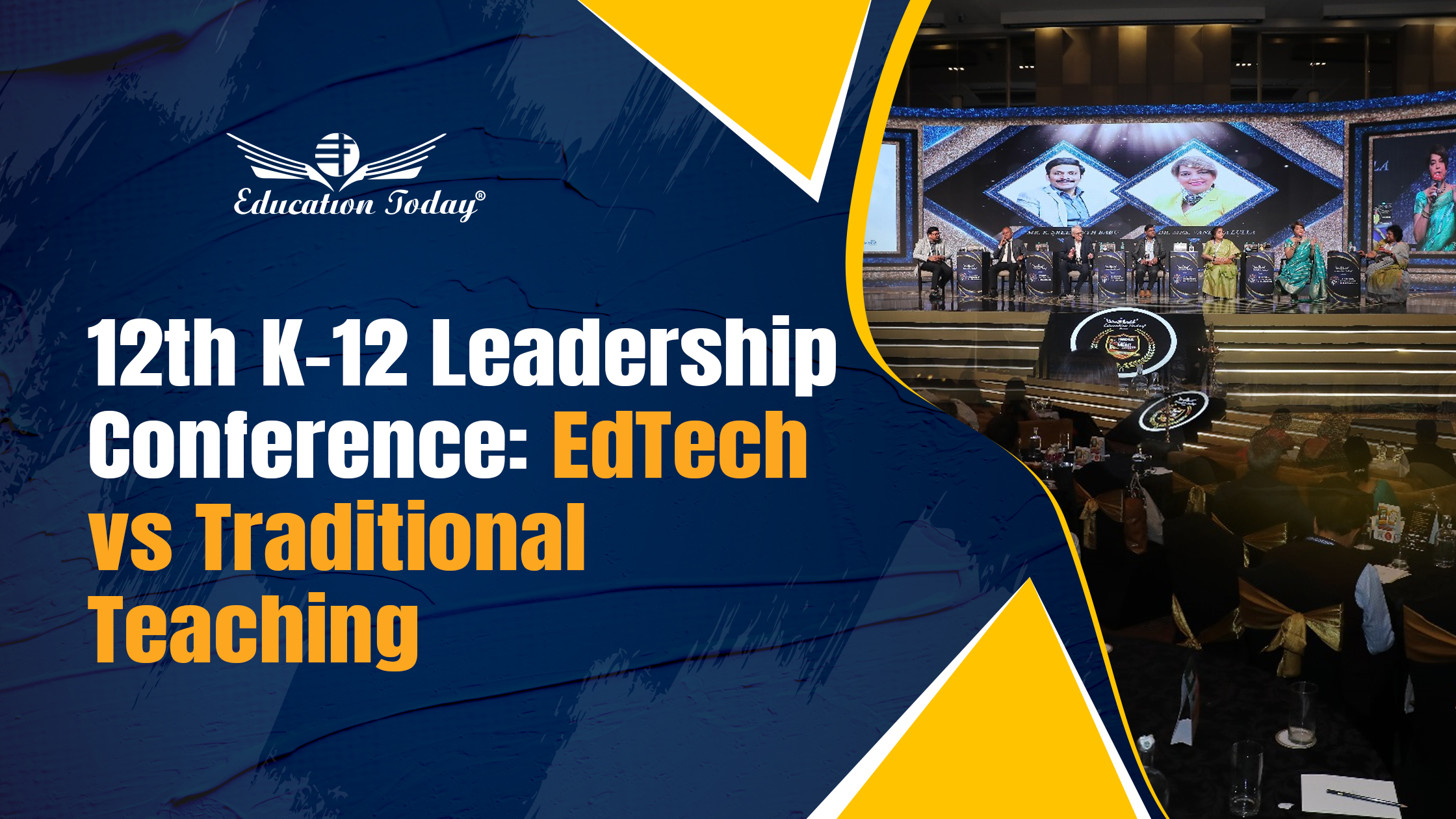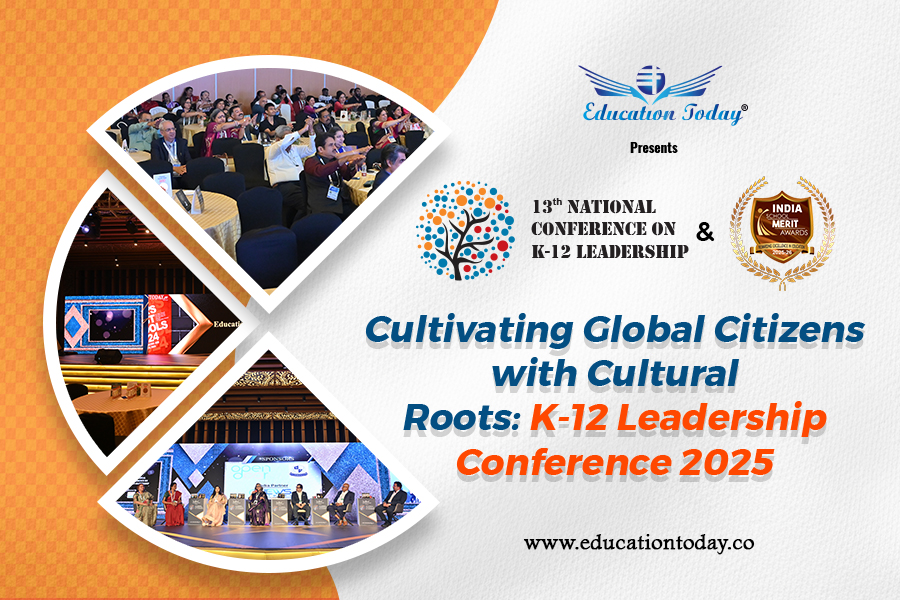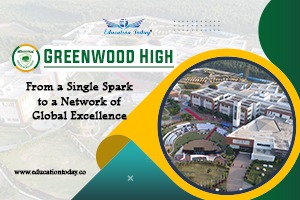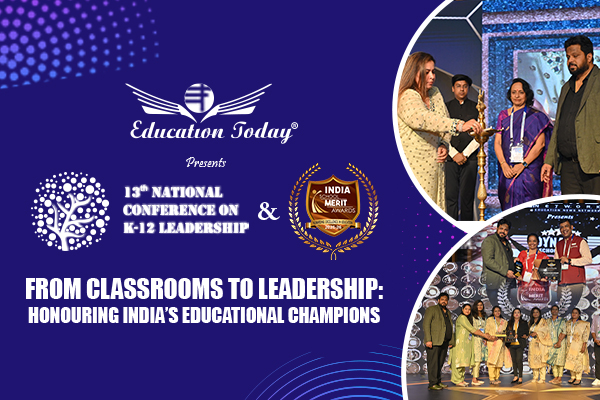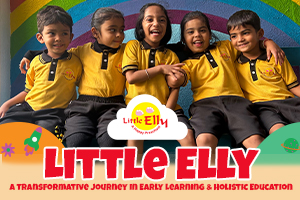EdTech vs Traditional Teaching: Insights from 12th K-12 Leadership Conference 2024
At EducationToday, education is not just about imparting knowledge; it's about creating a lasting impact. We've been at the forefront of celebrating and advancing educational excellence for over a decade. Our commitment to recognizing the nation's best schools and educators remains unwavering, and we continue to offer fresh perspectives on India's evolving education landscape. This year, we hosted the prestigious 12th National Conference on K -12 Leadership 2024 and India School Merit Awards 2024 with Popcorn Furniture, powered by Unipro, and Knowledge Partner SSVM Institutions. This event was a testament to our legacy of honoring the country's educators and institutions that drive change.
The event, held on December 10th, 2024, at The Taj, Bengaluru, brought together a vibrant group of educators, consultants, school principals, and other stakeholders across India. This dynamic assembly gathered under one roof to celebrate and recognize the achievements of the nation's top educators. The awards segment of the event was a grand occasion that highlighted those who have made exceptional contributions to education.
Panel Discussion: EdTech or Traditional Methods – Which Offers Greater Sustainability?
One of the conference's highlights was a thought-provoking panel discussion: “In the quest for lasting educational impact, which offers greater sustainability: EdTech solutions or traditional teaching methods?” Dr. Manila Carvalho, Principal of Delhi Public School, Bangalore East, moderated this engaging session, which featured a distinguished panel of educators with diverse insights on the ongoing debate around the future of education.
Key Insights from the Panelists
Dr. Manila Carvalho emphasized the need for balance, pointing out that while EdTech tools are becoming integral to the educational experience, they must always serve the greater good of students. She stressed that these tools should be carefully integrated into the school system, under the oversight of teachers and school management, ensuring that they complement and enhance, rather than replace, traditional teaching methods. As Dr. Carvalho put it, “Technology solutions must never compromise the emotional well-being of students.”
Mr. Santanu Das, Principal of Sarala Birla Academy, Bengaluru, discussed the importance of sustainability in education, noting that it’s not just about the environment but also about preparing students for a future where they are responsible global citizens. He acknowledged the role of EdTech in addressing diverse learning needs but reiterated that the teacher remains central to the learning experience. “No technology can replace the emotional bond and human interaction that shape the educational experience,” he said.
Mr. Allan Andersen, Director of Chaman Bhartiya School, Bengaluru, echoed similar sentiments, highlighting the indispensable role of technology and human presence in education. He explained that while technology enhances differentiation, feedback, and multimedia integration, it cannot replicate empathy and emotional intelligence—core aspects of teaching that machines cannot achieve.
Dr. Vandana Lulla, Director of the Podar Group of International Schools, Mumbai, offered a compelling view that success in education should be about finding the right balance between innovation and tradition. While EdTech is excellent at analyzing data and tracking skills, she emphasized that the teacher-student relationship is the cornerstone of personal development. “Technology should support, not replace, the human connection that fosters emotional well-being and social skills,” she explained.
Dr. Anil Kumar T, Principal of Amarajyothi Public School, Bengaluru, brought attention to the irreplaceable qualities of traditional teaching. He emphasized that traditional methods excel in forming emotional connections, offering real-time adaptability, and providing emotional support—elements technology cannot replicate. Teachers, he noted, play a vital role in shaping values and culture, which remain central to a student’s development.
Ms. Suja George, Vice Chairperson of the Alpha Group of Institutions, shared her thoughts on how technology aids critical thinking and problem-based learning. However, she also stressed that face-to-face instruction fosters interpersonal skills, discussions, and personal connections. A balanced approach, she argued, is necessary to optimize both methods for holistic student development.
Mr. K. Sreekanth Babu, Director of Kennedy & NextGen Schools, Guntur & Ongole, concluded the discussion by emphasizing the importance of investing in teacher education and fair compensation. While EdTech innovation is crucial, he asserted that teachers must remain at the heart of education to uphold human values and ensure that students' emotional and intellectual development is prioritized.
The Road Ahead: A Balanced Approach
The panel discussion provided valuable insights into how EdTech and traditional teaching methods can complement each other to create a sustainable and meaningful educational experience. While technology has a significant role, the consensus was clear: teachers are irreplaceable. Human connection, empathy, and the ability to adapt to students' emotional and intellectual needs cannot be replicated by machines.
The debate between EdTech and traditional teaching methods is far from settled. Still, one thing is sure—education must evolve to meet the needs of students, teachers, and the ever-changing world. By combining the strengths of both approaches, we can create a future where education is not only accessible but also emotionally enriching and intellectually stimulating.
As we continue to celebrate educational excellence through events like the 12th National Conference on K-12 Leadership and the India School Merit Awards, we remain committed to exploring and addressing educational challenges and opportunities. Stay tuned for more insightful discussions and updates on the future of education.

